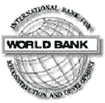|
 Economic growth in developing countries will decline to 5.9 per cent this year, from 6.8 per cent last year, says the World Bank's annual Global Economics Prospect for 2006 report, which forecasts economic growth in developing countries will be 5.7 per cent in 2006. Economic growth in developing countries will decline to 5.9 per cent this year, from 6.8 per cent last year, says the World Bank's annual Global Economics Prospect for 2006 report, which forecasts economic growth in developing countries will be 5.7 per cent in 2006.
The report predicts that developing economies will continue to grow at very high rates, and more than twice as fast as high income economies, while forecasting that growth in high income countries will be largely flat. Overall, the report says the slowdown among industrial economies, which began in the second half of 2004, continued this year. It predicts gross domestic product (GDP) growth will come in at 2.5 per cent, down from 3.1 per cent last year. "That reflects different developments. We see the growth in the United States slowing somewhat; Japan being relatively stable at currently levels of just over two per cent and a strengthening of growth in Europe," says Andrew Burns one of the authors involved in the report. Despite the slow down in economic growth of developing countries in percentage terms says Burns, it still remains "very strong". He attributes high oil prices as one factor for the slow down but expects them to decline over the next several years. "We see the prices at $60 a barrel for 2006. We expect them to average $56 and to fall to about $52 a barrel in 2007." However, the increases in oil prices since 2004 is expected to generate "substantial economic costs" for oil-importing poor economies, he says, which are not reflected in the GDP figures - "If we look in terms of incomes in developing economies, there the slowdown has been much sharper - we've had a drop in incomes of around three per cent." Unless steps are taken to assist the most vulnerable of the oil importing low income countries, they are going to have to meet that additional cost to pay for higher oil by cutting back on spending on other items. "And that, we fear, will have an important impact on poverty in those countries," he says. The report says its relatively positive outlook is subject to "important downside risks", which include the possibility of a disruption in oil supply. The report warns that a future supply shock could drive oil prices even higher, potentially reducing global output by 1.5 per cent for several years. The future path of interest rates, which despite recent increases are still low, is also identified as another source of uncertainty. The report says persistent global imbalances, signs of rising inflation and concerns about the sustainability of government finances in industrialised are all factors that could push rates up, and possibly provoke a more serious slowdown. The negative terms-of-trade impact of high oil prices is estimated at around three per cent of income in oil-importing low-income countries. Unless steps are taken to assist the most vulnerable of these countries, they may be forced to cut essential non-oil imports. One of the risks to the outlook investigated in the report is the possibility of a disruption in oil supply that could send oil prices even higher, potentially reducing global output by 1.5 per cent for several years. A second uncertainty arises from persistent global imbalances and rising public debt in high-income countries. This, the report cautions, could cause long-term interest rates to rise much faster than expected, and dampen growth prospects. The recent strong economic performance of developing countries suggests that reforms undertaken over the past decades have had a positive impact on growth trends.
|